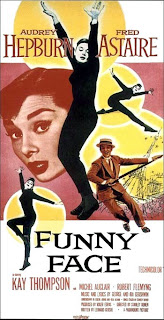DISCLAIMER: I have never read any of the Tintin comic strips. This review is based solely on the film.
The Adventures of Tintin is the story of a young journalist/adventurer and his faithful terrier as they quest for one of the largest sunken pirate treasures in history. Based on the Secret of the Unicorn and Red Rackham's Treasure story arcs from the original comic strip, it was directed by Steven Spielberg and produced by Peter Jackson. It's visually stunning, and it might entertain children between the ages of 4 - 11, but ultimately I found it boring and derivative.
Tintin has a lot of exciting scenes, such as Tintin talking to his dog in the library, and Tintin talking to his dog in his flat. The character of Tintin is about as bland as can be. The boy adventurer has no "save the cat" moment, an event that makes the audience want to follow the character for the rest of the movie, and he is often outsmarted by his dog. Snowy the terrier is really the only smart character in the film; everyone else is portrait with a certain degree of buffoonery. There are several moments where the dog - and therefore, the audience - has figured something out well before the other characters, making the mystery aspects of the story somewhat irrelevant.
The first thing I asked my roommate after we watched the movie was, "What demographic do you think this was made for?" And though he enjoyed the movie as much as I didn't, he immediately admitted my point. Tintin is almost bipolar in it's content, moving from slapstick sight-gags to serious, emotional content with jarring speed. One moment, characters are being comically tossed about on a rolling ship, and the next moment a key character is being fatefully tempted by his alcohol addiction. One scene is nothing but talking heads, the next is a dazzling chase sequence. I just don't know who this movie was made for, kids or adults.
Again, while I've never read the source material, the film has many of the telltale signs of bad screen adaptation. In a comic, it makes sense for the lead character to explain what he's doing as he's doing it. In a movie, it comes off as redundant and boring. I often felt that Tintin only said certain lines because they were in the comic strip.
If there's one thing that can be said for Tintin, it is the quality of its visuals. It's a gorgeous movie, stretching computer generated images to their limits. There were moments when I literally forgot it was an animated movie, it looked so real. But almost too real at times, to the point of being creepy. It makes me wonder, if the goal was to make it look as real as possible, why not shoot it for real? Now, I could write an entire essay on the reliance on special effects, whether or not we should be pushing those limits, and if the medium actually supports the story or not. Ultimately, I never felt like the outstanding visual effects where used for any artistic reason or because they were the best way to make this movie; rather, because Spielberg and Jackson wanted to play with the same technology that made Avatar.
That's just my suspicion, however.
The Adventures of Tintin is a finely crafted money-maker, made to appeal to the lowest common denominator. It's stunning visuals will get most people excited, and it will surely please many "simpler" viewers. But most mature film-goers won't find any real content here.
The Adventures of Tintin releases in theaters this Wednesday.
Sunday, December 18, 2011
Saturday, December 3, 2011
Retro Review: Funny Face
 I don't like musicals.
I don't like musicals.There. I said it.
I don't like them because, usually, their stories are nothing more than an excuse to get to the next song and dance number. And that's fine if you're into that sort of thing. It's not for me. Usually. And while Funny Face is another notch on my musicals-I-don't-care-for-stick, it did change some things up.
Funny Face tells the story of a young, intellectual woman (the ever-raveshing Audrey Hepburn) who is whisked away into the world of fashion and modeling. Of course, they go to Paris. And Fred Astaire too, and he dances. The musical numbers are decent, but only one or two memorable songs. Besides Audrey, the acting is sub par. However, unlike most musicals where the story is a slave to pushing the musical numbers forward, I found this story actually interesting! It dealt with society, and expectations, and art vs. intellect, and it almost had something to say. But then those pesky musical numbers kept popping up and it was like they were getting in the way. This movie came so close to captivating me, but every time it almost got there, people would break into another song and dance and kill the momentum.
This leads me to beg the question: why did this movie have to be a musical? I mean, seriously! Imagine if Fred and Audrey had to actually deal with their differences instead of just dancing around to make it better. There could have been actual character depth had the characters been given enough time to actually grow before randomly breaking into song. Funny Face came so close to doing something interesting, but its music, the very nature of its genre, held it back. And its music wasn't even that good.
I guess the flip side is, would it's musical numbers have been any better if it didn't have such a worthy story?
Subscribe to:
Posts (Atom)